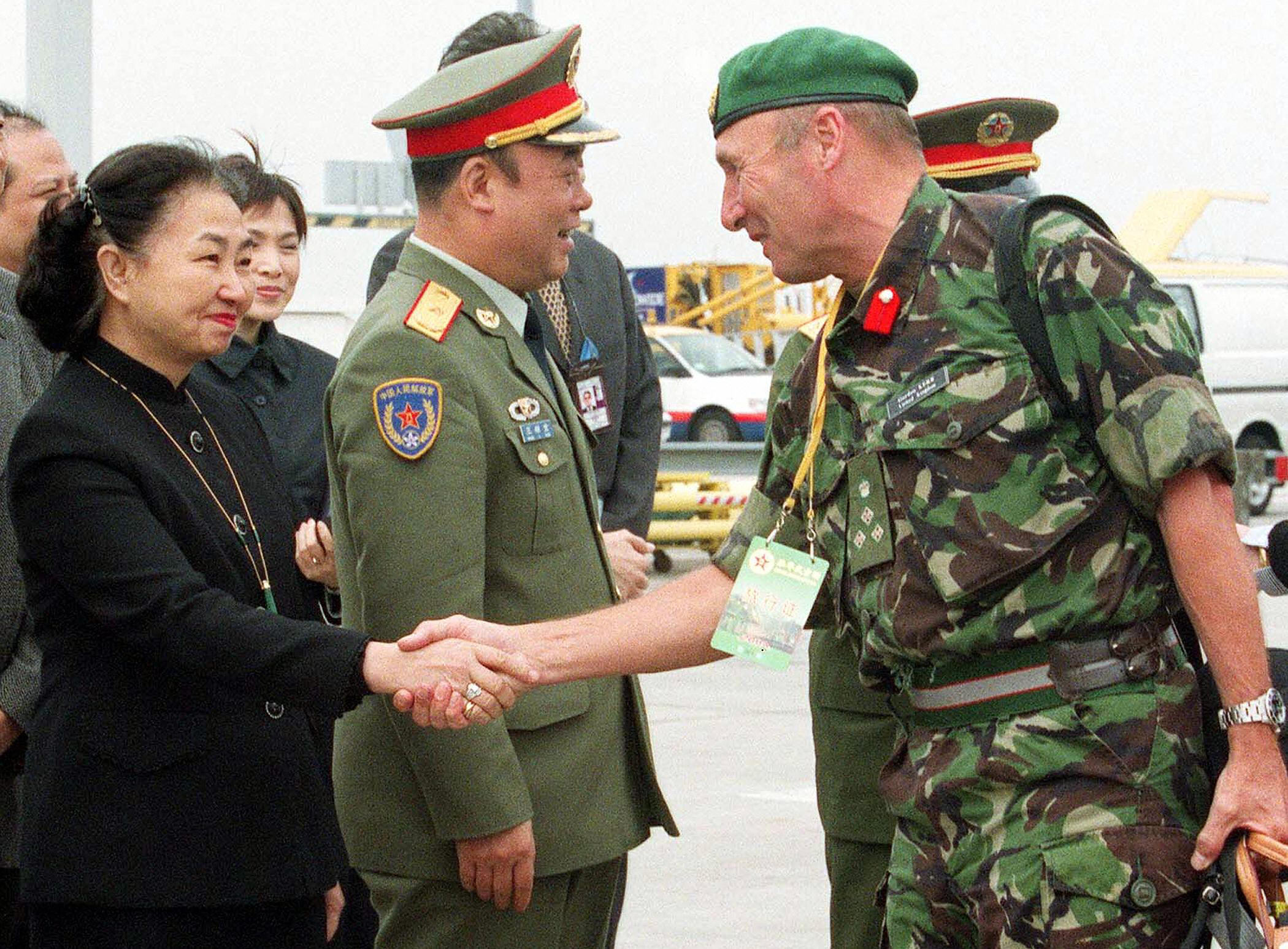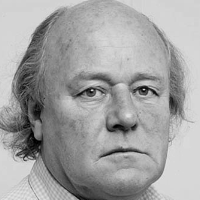Colonial powers carved up land between them, dividing age-old settlements, tribes and indigenous peoples. A map of Africa can tell us that. Other maps show boundaries, the result of partitions by Britain that remain a cause of violent conflict in the Middle East, Asia — and the United Kingdom.
This year, 3 May marks the centenary of the creation of Northern Ireland, made up of six of Ulster’s nine counties (widely but wrongly referred to as “The Province”). It is not a time for celebration, even by Unionists, who support the UK.
Two books have now been added to the voluminous library devoted to this troubled land. One considers its uncertain future, the other how it became the killing field for the Irish Republican Army (IRA), “loyalist’ paramilitary groups, the British army, and the Royal Ulster Constabulary (RUC —the Northern Irish police force), aided and abetted by Britain’s domestic security agency, MI5.
“The Union is slipping”, writes Brian Rowan, a former BBC journalist and author of Political Purgatory, subtitled The Battle to save Stormont and the Play for a New Ireland.
The centenary, he says, is not just about 100 years of Northern Ireland. It is also about 100 years of partition.
Unionism has lost its overall majority in the Northern Ireland Assembly and Unionists no longer have a majority of Northern Ireland seats at the UK parliament in Westminster. That is part of the price Unionist parties paid for supporting Brexit during the EU referendum campaign.
A majority of people in Northern Ireland voted to remain in the EU. Now the consequence of a hard Brexit agreed by the Westminster government — a trade “border” in the Irish Sea — has prompted more talk of a poll on the unification of Ireland and provoked riots in Belfast.
“Northern Ireland or the North is no longer a place of just two tribes”, concludes Rowan, “everything is changing”.
Agents of influence
How very little changed during nearly three decades of violence at the cost of more than 3,500 lives is described in Agents of Influence, subtitled Britain’s Secret Intelligence War Against the IRA, by Aaron Edwards, a lecturer at Sandhurst military academy.
The book is an account of the use by Britain’s often competing intelligence agencies of individuals who, as the author puts it, were asked “to put their lives at risk in order to obtain secret information”.
In Northern Ireland history is inseparable from the present. Two (unidentified) former British paratroopers are now being tried in Belfast crown court accused of fatally shooting in the back Joe McCann, a member of the Official IRA, in 1972.
The Queen’s Speech next month is expected to include a law to protect British forces from being prosecuted in future for their past actions in Northern Ireland.
Edwards sheds some new light on the activities of “agents of influence” — individuals described by MI5 as “unsung heroes… subject to control and direction”.
He describes in some detail activities and claims of prominent IRA individuals, including members of the IRA’s internal security unit, its “nutting squad”, and the relationship between Willie Carlin, MI5’s spy within Sinn Fein, and Martin McGuinness as the former IRA commander made his journey to his election as Northern Ireland’s deputy first minister.
The author rightly points to the destructive rivalry between the different intelligence-gathering agencies of the British security state — the RUC’s special branch, the army’s Force Research Unit (FRU) and MI5.
He recounts how Sir Maurice Oldfield, the former head of Britain’s external intelligence agency MI6, was brought in by Margaret Thatcher to take over responsibility for security policy after the assassination of Lord Mountbatten in 1979.
Oldfield was handed the extremely difficult task of breaking the agencies’ jealously-guarded independence. He quickly became a victim of false claims about child abuse and propositioning a man in a Belfast pub — smears almost certainly put about by resentful elements in the RUC or MI5. Oldfield was summoned back to London and died of cancer soon afterwards.
Edwards, who passes over the discrediting of Oldfield, lays out his research, including many interviews, against a timeline of episodes, beginning with Mountbatten’s death, and the attack later the same day which left 18 soldiers dead in Warrenpoint, the highest death toll inflicted on the British army in a single incident in Northern Ireland.
Penetration of the IRA by British intelligence stopped some attacks. Equally, British intelligence prevented some killings by loyalist groups, including those of leading republicans that might have jeopardised secret dialogues.
For years, with a nod and wink from some ministers in Thatcher’s government, Michael Oatley, a senior MI6 officer, and Derry businessman Brendan Duddy had been engaging in backchannel talks with the IRA, notably McGuinness. MI6 was the one British agency that took the long view, realising that peace had to be negotiated at some point in the future.
Informants — spies, “agents of influence” — saved lives in Northern Ireland. But there is another side to their activities which writers, especially academics, shy away from, seemingly reluctant to confront the ugliest aspects of the dirty war.
Agents and crimes
MI5 told the RUC to give priority to spying over solving crime, and not to arrest a suspected terrorist without first consulting the Special Branch responsible within the RUC for recruiting informers.
Agents and informers for British intelligence were advised by their handlers to participate in criminal actions including murder, in order to protect them from suspicion.
One of two prominent informers recruited by the army’s FRU is Stakeknife, said to be the head of the IRAs “nutting squad”. Stakeknife has been widely reported to be Freddie Scappaticci, arrested in 2018 in connection with murder and other offences by detectives investigating British intelligence gathering. Scappaticci has denied he is Stakeknife and that he was involved in any such offences.
Edwards describes the late John Joe Magee, formerly of the Royal Marines and Special Boat Service, a particularly brutal member of the “nutting squad” and allegedly an informer for British intelligence, as Stakeknife’s boss. He observes that “the FRU remains shrouded in mystery”.
Pressure by John Stevens, a former Metropolitan Police Commissioner, angered by the refusal of the British army to cooperate in his investigations into Stakeknife and collusion with loyalist paramilitaries, led to the setting up of a new inquiry, Operation Kenova.
The inquiry was led by Jon Boutcher, then chief constable of Bedfordshire police, who in 2020 said prosecutions would be “very much the exception”.
Brian Nelson, also controlled by the FRU, was a loyalist paramilitary intelligence officer responsible for directing attacks by the Ulster Defence Association. He passed information to the killer of Pat Finucane, a Belfast human rights solicitor, shot in front of his young family in 1989. The man who supplied the weapon that killed Finucane was a Special Branch informer.
Police evidence to an inquiry into the murder by Sir Desmond de Silva QC, noted that “the military allowed him (Nelson) to continue his work even though he had clearly reached a point of involvement which was undoubtedly criminal”.
Edwards chooses to quote a passage from de Silva’s report stating that “the running of agents in terrorist organisations was one of the most effective methods by which the security forces could frustrate terrorist activity and save lives”. Nelson, who was jailed for conspiring to kill Catholics in a plea bargain, died in 2003.
In a ruling criticising earlier inquiries into Finucane’s killing for being ineffective, the Supreme Court in 2019 referred to an agreement by the Irish and British governments for a full public inquiry into the murder. The British government has reneged on that agreement.
There is little doubt that British penetration of the IRA did help to prevent some IRA attacks. There is also little doubt claims of British intelligence successes are exaggerated for propaganda reasons.
Protecting spies
There is little doubt, too, that British intelligence handlers turned a blind eye to their agents and informers infiltrating both the IRA and loyalist paramilitary groups colluding in killings. British intelligence was prepared to sacrifice lives in order to protect their spies who were considered to be more important.
The “intelligence war” may have contributed to the stalemate that would eventually lead to the 1998 Good Friday Agreement and a settlement in which both sides could claim they were not defeated.
The IRA and Sinn Fein began to appreciate they needed broader political support in Ireland’s republican and nationalist community. Britain’s military and political establishments wanted a way out of the mire the conflict in Northern Ireland had dragged them into.
One lesson of the conflict is how easily intelligence agencies, in the name of “national security”, the “public interest”, or a “greater good” can get dragged down into the dangerous argument that they can commit crimes, including murder.
Yet the government does not seem to care. Its new Covert Human Intelligence Sources Act provides further protection to undercover MI5 and police informers engaging in activities that would otherwise be considered criminal.
The government’s initial draft of its Overseas Operations Bill sought to protect British troops from prosecution for torture, genocide and war crimes. It was only after fierce opposition from former generals, military lawyers and some Conservative MPs that these have now been dropped.
The original Bill showed just how far the government was prepared to go to shield British troops when claims about their activities in Iraq and Afghanistan continue to be reported, including alleged executions by SAS soldiers.
They would otherwise have given the green light to torture — something the British government had authorised in Northern Ireland.


